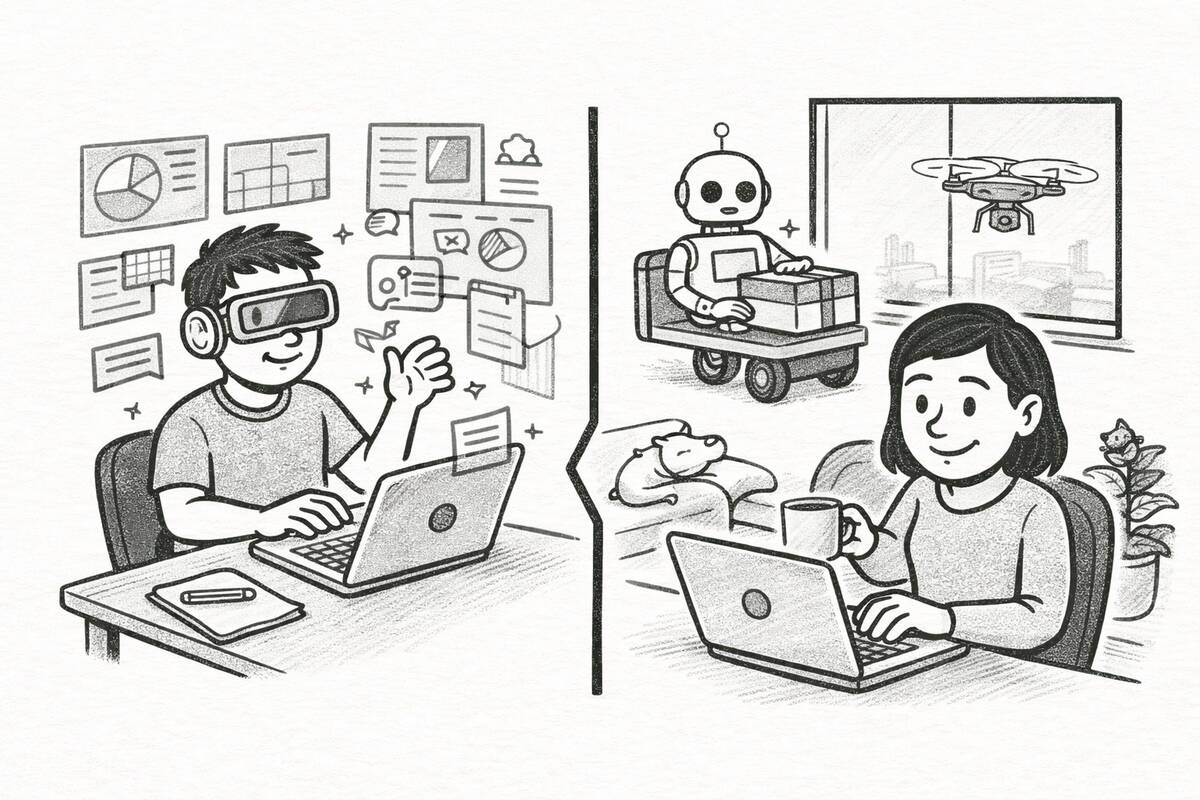Remote work is no longer just a trend or a temporary solution. It has become a fundamental shift in the way we approach our careers and our lives. This transformation is reshaping traditional career paths in ways that are both exciting and challenging. As someone who has experienced the shift from office-based work to a remote setup, I can personally attest to the profound changes this shift brings. In this article, we will explore how remote work is altering the landscape of careers, offering new opportunities, and demanding new skills.
Flexibility
The New Norm
One of the most significant changes brought about by remote work is the flexibility it offers. Gone are the days when employees had to adhere to a strict 9-to-5 schedule, battling traffic and enduring long commutes. Remote work allows individuals to set their own schedules, creating a work-life balance that suits their personal needs.
For example, I remember the first time I was able to attend my child’s school play without having to request time off or rush back to the office. The freedom to manage my own time was liberating and allowed me to be more present in my personal life while still maintaining my professional responsibilities. This flexibility is not just a perk; it is becoming an expectation for many workers who prioritize their well-being and family time over the traditional office routine.
Geographic Independence
Expanding Horizons
Remote work has dissolved geographical barriers, allowing people to work from anywhere in the world. This shift has opened up a wealth of opportunities for those living in areas with limited job prospects. It also means that companies can tap into a global talent pool, attracting skilled workers regardless of their location.
I have a friend who always dreamed of living in a small coastal town, but her career in marketing kept her tethered to the city. With the rise of remote work, she was finally able to make the move. She now works from her beachside home, enjoying a lifestyle she never thought possible while continuing to excel in her career. This geographic independence is empowering individuals to pursue their ideal living situations without sacrificing their professional aspirations.
Diverse Career Opportunities
Breaking the Mold
Traditional career paths often followed a linear progression: education, entry-level job, promotions, and eventually retirement. Remote work is breaking this mold, offering diverse career opportunities that allow for non-linear progression. Freelancing, gig work, and contract positions are becoming more common, providing individuals with the chance to explore various fields and roles throughout their careers.
For instance, I once worked with a software developer who left his corporate job to become a freelance consultant. He now works on a variety of projects for different companies, constantly learning new skills and expanding his expertise. This non-linear path has not only increased his job satisfaction but also made him a more versatile and in-demand professional.

Skill Diversification
The Need for Adaptability
As remote work reshapes traditional career paths, it also necessitates a diversification of skills. The ability to adapt and learn new technologies is crucial in a remote work environment. Workers must be proficient in digital communication tools, project management software, and other technologies that facilitate remote collaboration.
I had to quickly adapt to new tools like Slack, Zoom, and Trello when I transitioned to remote work. While the learning curve was steep, mastering these technologies made me more efficient and effective in my role. This constant need to learn and adapt keeps work interesting and ensures that I am always growing professionally.
Work-Life Integration
Blurring the Lines
While the flexibility of remote work is a significant advantage, it also blurs the lines between work and personal life. Without the physical separation of an office, it can be challenging to disconnect from work and fully engage in personal activities. This integration requires a new level of discipline and time management skills.
I recall struggling with this balance in the early days of remote work. My home office was just a few steps away from my living room, making it tempting to check emails or finish a project outside of regular working hours. Over time, I learned the importance of setting boundaries and creating a dedicated workspace to maintain a healthy work-life balance.
Mental Health and Well-Being
A Double-Edged Sword
The impact of remote work on mental health and well-being is a double-edged sword. On one hand, the flexibility and elimination of stressful commutes can improve overall well-being. On the other hand, the isolation and lack of social interaction can lead to feelings of loneliness and anxiety.
Personally, I found the lack of daily interactions with colleagues to be one of the biggest challenges of remote work. The spontaneous conversations and camaraderie of the office were hard to replicate through virtual meetings. To combat this, I made a conscious effort to stay connected with my team through regular video calls and virtual social events. This helped maintain a sense of community and support, which is essential for mental well-being.
Redefining Success
Personal Fulfillment Over Traditional Metrics
Remote work is also redefining what it means to be successful. Traditional metrics of success, such as climbing the corporate ladder or achieving a prestigious title, are being replaced by personal fulfillment and work-life balance. Many remote workers prioritize finding meaningful work that aligns with their values and passions over pursuing traditional career milestones.
I have a colleague who left a high-paying executive position to start her own remote consulting business. Her decision was driven by a desire for more meaningful work and the flexibility to spend time with her family. While her new role may not come with the same prestige or financial rewards, the personal fulfillment she gains from helping clients and being present for her children far outweighs traditional measures of success.
The Role of Employers
Adapting to the New Reality
Employers play a crucial role in supporting remote work and adapting to this new reality. Companies must embrace flexible work policies, invest in the right technologies, and foster a culture of trust and accountability. Remote work requires a shift in management styles, focusing more on outcomes and results rather than hours worked.
I have seen companies succeed in this transition by offering comprehensive remote work training programs, providing stipends for home office setups, and promoting a results-oriented culture. These efforts not only support remote workers but also attract top talent who value flexibility and autonomy in their careers.
The Future of Remote Work
A Hybrid Model
Looking ahead, the future of work is likely to be a hybrid model that combines remote and in-office work. This approach offers the best of both worlds, allowing employees to enjoy the flexibility of remote work while maintaining the benefits of in-person collaboration. Hybrid models can cater to diverse employee preferences and create a more inclusive and dynamic work environment.
I have experienced the benefits of hybrid work firsthand. Splitting my time between home and the office allows me to focus on deep work without distractions while still enjoying the social and collaborative aspects of the office. This balance has enhanced my productivity and overall job satisfaction.
Conclusion
Embracing the Transformation
The shift to remote work is reshaping traditional career paths in profound ways. It offers unprecedented flexibility, geographic independence, and diverse career opportunities while demanding new skills and adaptability. As we navigate this transformation, it is essential to embrace the changes and seize the opportunities they present.
My journey into remote work has been filled with both challenges and rewards. The ability to create a work-life balance that suits my needs, explore new career paths, and continuously learn and grow has been invaluable. As we move forward, it is clear that remote work is not just a passing trend but a fundamental shift that will continue to shape the future of careers. By embracing this transformation, we can build more fulfilling and dynamic professional lives.
You might also like: Do U.S. Workers Really Have the Right to Unionize? The Facts vs. Reality









